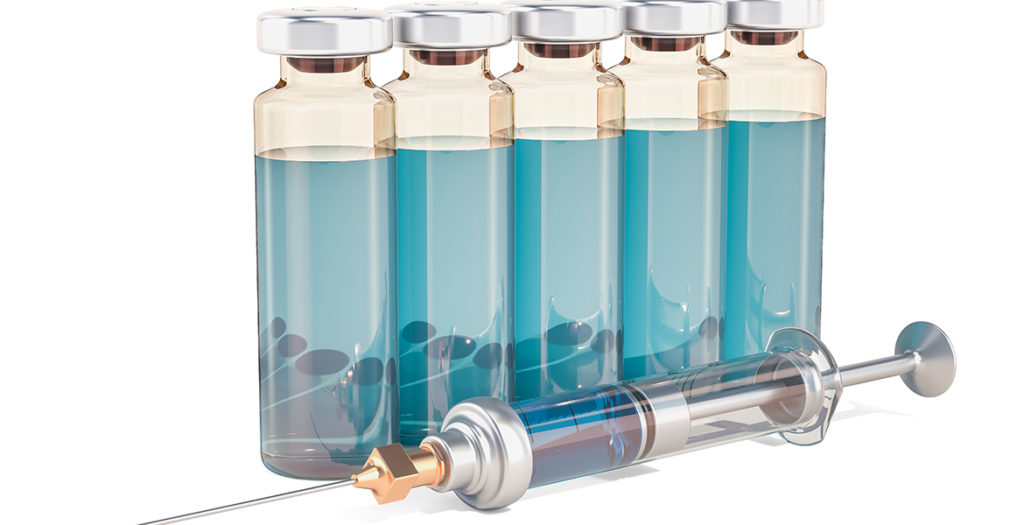What jabs should you have while you’re expecting?
By Sally J. Hall
When you’re pregnant, you can’t take many over-the-counter or prescription medicines to avoid damaging your baby. But when there is a potentially infectious virus around, what’s the best advice? Should you have jabs or avoid them?
Whooping cough
Best time to have it: between 20 and 32 weeks
Though you’re not at much
risk of catching whooping
cough (pertussis) yourself,
your baby may be at risk in
the first few weeks of life if
you do not have the vaccine.
Dr Ge Zhang (PhD,
MRCOG, MSc, MBBS,
Consultant Obstetrician and
Gynaecologist at The Lindo
Wing, St Mary’s Hospital
London, says: “Whooping
cough is a serious condition
which can cause long bursts
of coughing and breathing
difficulties. In a baby, this may
lead to pneumonia, brain
damage or even death.
“To prevent whooping
cough, pregnant mothers are
advised to have the vaccine
from around the 20th week of
their pregnancy.
“The whooping cough vaccine is an inactivated vaccine and safe for pregnancy. Vaccines cause the body to develop antibodies, which can be passed to the unborn baby and protect them in the first few months of life.”
Flu
Best time to have it: October to February
You may have had flu many times but pregnant women are more at risk of complications (bronchitis, pneumonia, ear infections, septic shock, meningitis and encephalitis among others).
Dr Zhang says: “The flu vaccine can be given at any time during the pregnancy. These are inactivated vaccines and safe for you during pregnancy.”
Hepatitis B
Best time to have it: early in pregnancy or ideally before conception
If you have become exposed to the Hepatitis B virus, through injecting drugs, having several sexual partners, or being exposed to infected blood, you should try to have the vaccine before you try to conceive. If that wasn’t possible, you can still have the vaccine.
There are no risks to you of having the vaccine but if you don’t, Dr Zhang explains: “Babies born to the mother of Hepatitis B need to have the vaccination at birth or within 12 hours after their birth; and then further doses at one, two and 12 months.”
What to avoid
Dr Zhang advises: “The MMR
(Measles, Mumps and Rubel-
la) and chicken pox vaccines
are live, which should be
avoided during pregnancy. If
you are not immune to rubel-
la, you will be offered the first
dose of the MMR vaccination
after the birth or at your six
week post-natal check. The
second dose is given four
weeks after the first dose.
“It is safe to breastfeed after having the vaccine.”
Zika update
Jimmy Whitworth, Professor of
International Public Health at
the London School of Hygiene
& Tropical Medicine, says:
“Zika virus can cause
microcephaly and other serious
birth defects. The epidemic
in Latin America has subsided
but there is still transmission
occurring in tropical areas.
There is no vaccine, so pregnant
women or those planning
pregnancy should postpone
travel to countries with a high
risk (the Caribbean, central
and south America, Rajasthan).
Consider deferring travel to
moderate risk countries. If you
do travel, follow public health
advice; use condoms for barrier
contraception while away and
for two months after, as the virus
can sometimes be transmitted
sexually. Travellers to Zika areas
should avoid mosquito bites
by using insect repellent and
wearing loose, long-sleeved
shirts and trousers.”
